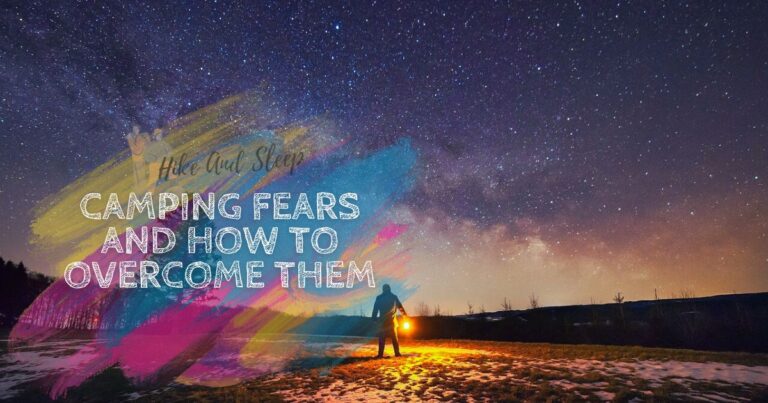Backpacking Vs Hiking: The Difference
In the vast wilderness of outdoor adventures, a choice awaits: backpacking vs hiking. Like the traveler at a crossroads, you yearn for freedom, seeking a path that will ignite your spirit and push your limits.
This article delves into the contrasting realms of backpacking and hiking, exploring the gear, trails, and experiences that define each pursuit.
Whether you crave the liberation of a multi-day trek or the simplicity of a day trip, join us as we embark on a journey to discover the essence of freedom in the great outdoors.
Table of Contents
Backpacking Vs Hiking: Key Takeaways
- Investing in cost-effective and reliable gear is essential for backpacking and hiking.
- Assessing the difficulty and length of trails is important for choosing the right adventure.
- Considering the advantages and differences between overnight trips and day trips helps in planning.
- Opting for ultralight gear and minimalist packing strategies enhances the hiking and backpacking experience.
Gear and Equipment
One must consider the necessary gear and equipment when engaging in either backpacking or hiking. For those who desire freedom and adventure, it is important to invest in gear and equipment that is both cost-effective and reliable.
When it comes to backpacking or hiking, the right gear can make all the difference in ensuring a successful and enjoyable experience.
The cost-effectiveness of gear and equipment is a significant factor to consider. While it may be tempting to opt for cheaper alternatives, it is crucial to choose gear that is durable and can withstand the rigors of the outdoors.
Recommended Read: Basic requirements of camping, Camping fears, Are hiking shoes necessary
Investing in high-quality gear may initially seem more expensive, but it can save money in the long run as it will last longer and require fewer replacements.
Proper maintenance of gear and equipment is equally important. Regular maintenance ensures that your gear remains in optimal condition, prolonging its lifespan and effectiveness. This includes cleaning and storing gear properly, checking for any damage or wear, and making necessary repairs or replacements.
By taking care of your gear, you can avoid unnecessary expenses and ensure that it will be reliable when you need it most.
Trail Difficulty and Length
Regularly assessing the difficulty and length of trails is crucial when comparing backpacking and hiking experiences. Trail maintenance and accessibility play a significant role in determining the level of difficulty of a trail.
A well-maintained trail with clear markings and regular upkeep is more accessible and easier to navigate, making it suitable for hikers of all skill levels. On the other hand, backpackers might seek more challenging trails that require advanced hiking skills and navigation abilities.
Safety precautions and emergency preparedness are also essential considerations when evaluating trail difficulty. Hikers should always be prepared with the necessary gear, such as a first aid kit, extra food and water, and appropriate clothing for potential weather changes.
Backpackers should take additional precautions, including carrying a satellite phone or emergency communication device and knowing how to use it in case of an emergency.
When comparing trail lengths, hikers often prefer shorter trails that can be completed in a few hours, allowing them to enjoy a quick getaway and return to their everyday lives. Backpackers, however, often seek longer trails that span several days or even weeks, providing an immersive experience in nature and the freedom to explore remote areas at a slower pace.
Ultimately, the choice between backpacking and hiking depends on individual preferences for trail difficulty and length, as well as the desire for adventure and freedom in the great outdoors.

Overnight Vs Day Trips
When planning outdoor excursions, it is important to consider the advantages and differences between overnight trips and day trips. Both types of trips offer unique experiences and opportunities for exploration, but they also require different levels of planning and preparation.
Day trips provide the freedom to explore nature and enjoy outdoor activities without the need for overnight accommodation. They are ideal for individuals who have limited time or prefer the comfort of their own bed at night.
Day trips also tend to require less planning and preparation compared to overnight trips. However, it is still important to take safety precautions, such as bringing enough food and water, wearing appropriate clothing and footwear, and informing someone of your plans and expected return time.
On the other hand, overnight trips offer the chance to truly immerse oneself in nature and experience the tranquility of the wilderness. They provide the freedom to travel further and explore remote areas that may not be accessible on a day trip.
However, overnight trips require more planning and preparation, including selecting a suitable camping site, preparing proper equipment, and considering weather conditions and safety measures.
Whether you choose an overnight trip or a day trip, it is essential to prioritize safety and plan accordingly. By taking the necessary precautions and being well-prepared, you can fully enjoy your outdoor adventure and make lasting memories.
Weight and Pack Size
Although often overlooked, the weight and pack size of your gear can greatly impact your hiking or backpacking experience. When it comes to choosing gear for your outdoor adventures, opting for ultralight gear and adopting minimalist packing strategies can make a world of difference.
Here are three reasons why weight and pack size matter:
- Freedom to move: Carrying a heavy backpack can quickly become a burden, hindering your ability to move freely and enjoy the trail. By choosing lighter gear and reducing unnecessary items, you can experience the freedom of a lighter load, allowing you to cover more distance with less effort.
- Reduced fatigue: A heavy pack can lead to fatigue, making your hiking or backpacking trip feel like a never-ending struggle. Ultralight gear and minimalist packing strategies help to minimize fatigue by reducing the strain on your body, allowing you to enjoy your adventure without feeling constantly exhausted.
- Enhanced enjoyment: When you’re not weighed down by a heavy pack, you can fully immerse yourself in the beauty of nature. Lighter gear and a smaller pack size enable you to move more easily, explore further, and appreciate the surroundings without being weighed down by unnecessary items.

Camping Vs Lodging Options
While considering the best accommodations for your outdoor adventure, it is important to weigh the benefits and drawbacks of camping versus lodging options. For those who desire freedom and a closer connection with nature, camping is the ideal choice.
It allows individuals to immerse themselves in the great outdoors, experience the serenity of sleeping under the stars, and enjoy the campfire cooking experience. However, camping also requires careful planning and safety precautions to ensure a smooth and enjoyable trip. On the other hand, lodging options such as cabins or hotels offer convenience and comfort.
They provide a cozy shelter, proper beds, and access to amenities such as showers and electricity. This is particularly appealing for those who prefer a more luxurious experience or for families with young children.
However, lodging options tend to be more expensive and may limit the freedom to explore remote areas. To help you make an informed decision, here is a comparison table highlighting the key differences between camping and lodging options:
| Camping | Lodging Options |
|---|---|
| Closer to nature | Comfort and convenience |
| Campfire cooking experience | Access to amenities |
| Requires safety precautions | More expensive |
| Freedom to explore remote areas | Limited to specific locations |
Ultimately, the choice between camping and lodging options depends on personal preferences and the specific needs of each outdoor adventure.
Conclusion
In conclusion, when comparing backpacking vs hiking, it is clear that both activities have their own unique benefits and considerations.
The choice between the two depends on factors such as gear and equipment, trail difficulty and length, overnight versus day trips, weight and pack size, and camping versus lodging options.
Ultimately, individuals should carefully consider their preferences and goals to determine which activity suits them best.
Remember, as the saying goes, ‘Don’t judge a book by its cover.







